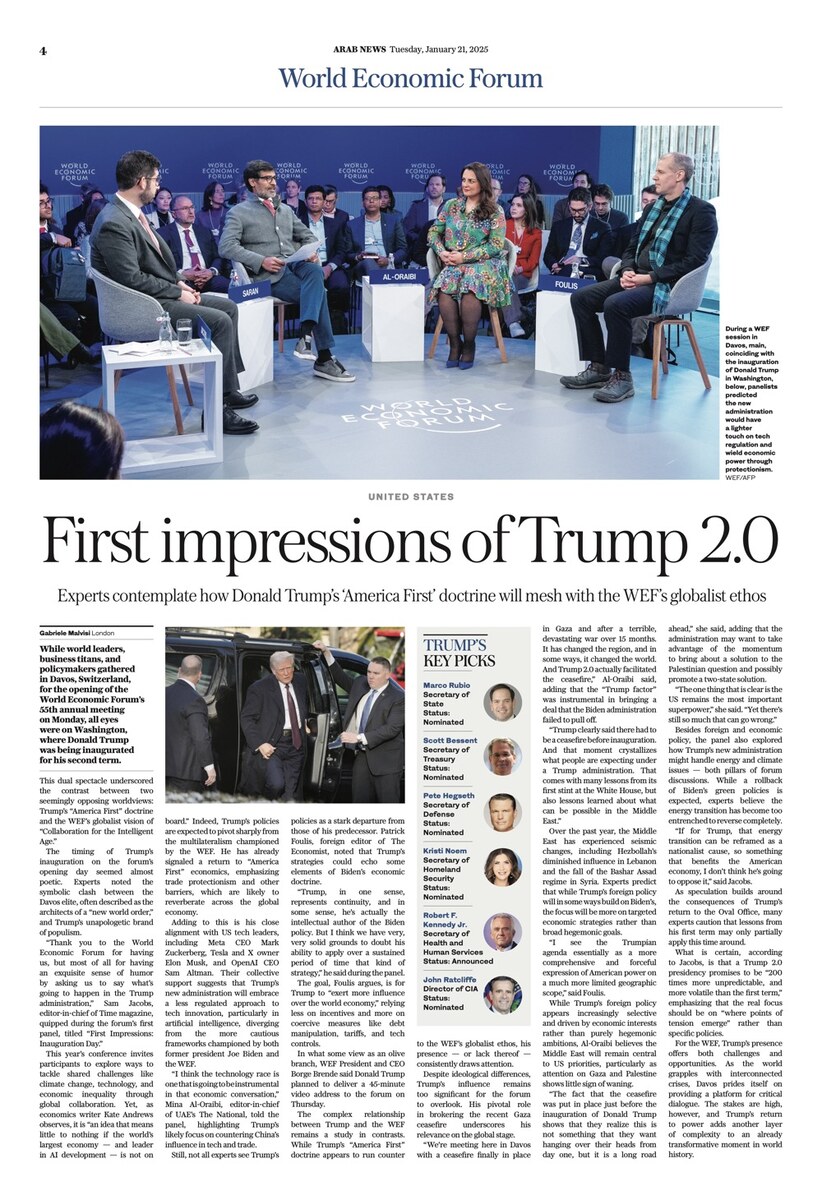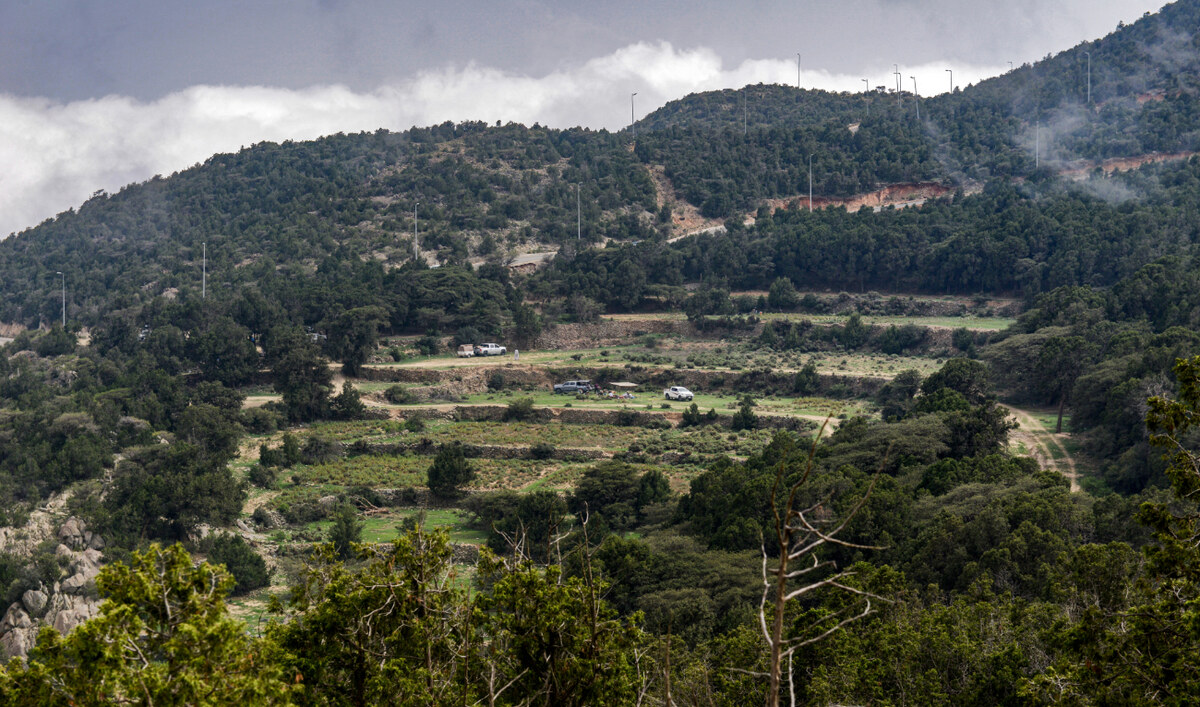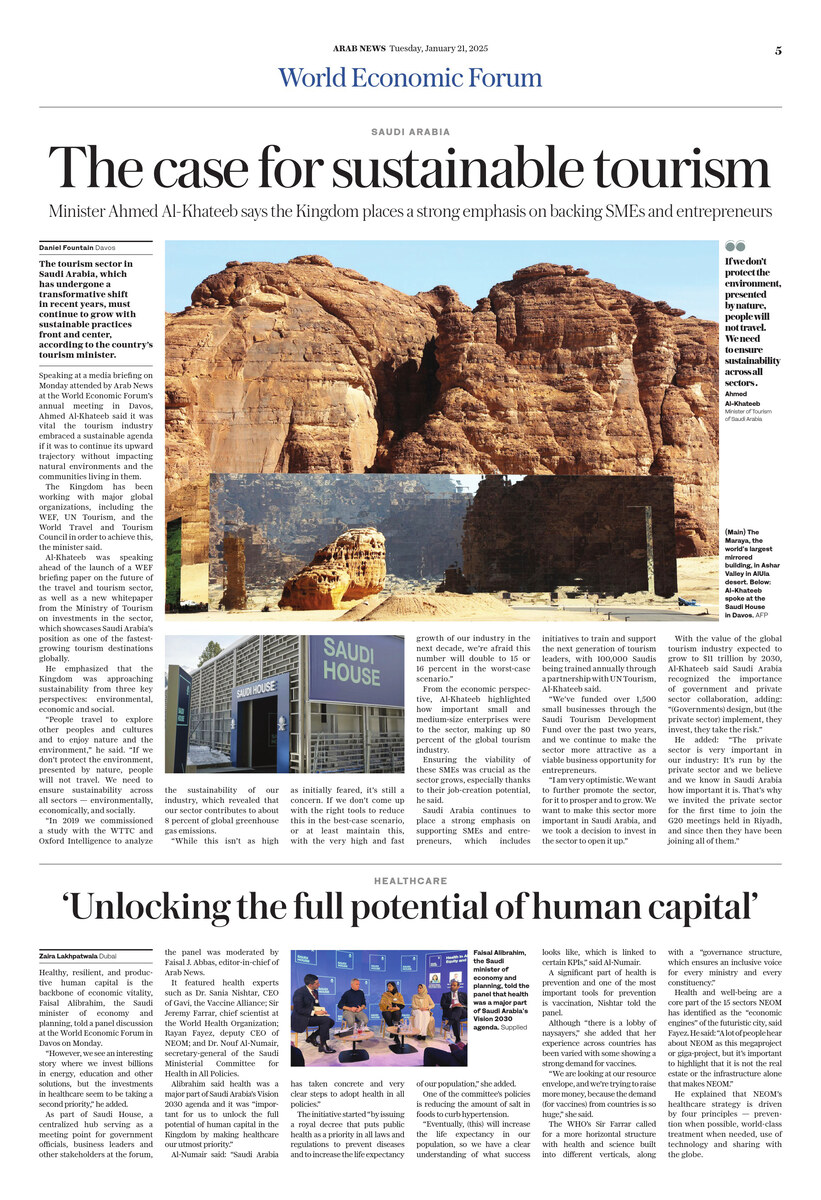RIYADH: Saudi Arabia and Pakistan are set to announce major collaborations in the mining sector, with a particular focus on copper and gold assets, according to a top official.
Speaking to Arab News on the first day of the Future Minerals Forum 2025, taking place in Riyadh from Jan. 14 to 16, the South Asian country’s Minister for Petroleum Musadik Malik explained that the two nations are also exploring collaboration prospects in additional sectors including energy, food security, and industrial.
This falls in line with Pakistan seeking to strengthen trade and investment ties with the Kingdom, whose leadership reaffirmed its commitment in September to expedite a $5 billion investment package for the country.
“Well, we are hoping and expecting the year 2025 to be a year of big announcements, particularly between the Kingdom of Saudi Arabia and Pakistan. As you know, we are in advanced stages of conversations about a very large asset, and we have done all the homework that was needed. We’ve done the commercial due diligence, we’ve done the legal deed due diligence. We’ve done the financial due diligence. Both sides have come up with valuation frameworks,” Malik said.
“In mining, it’s going to be the mining assets, particularly the copper mining assets, copper and gold mining assets. So, we are very hopeful about that,” he added.
The senator said the valuation ranges are in place, and both teams are now empowered to negotiate.
“Right now, we are under non-disclosure, so I can’t give you the details, but suffice to say that we are expecting very big announcements very soon,” Malik said.
“In the industrial areas, as you know, there are about $2 billion worth of commercial MoUs (memorandums of understandings) and contracts already signed between the Saudi companies and Pakistani companies, and many of them have become the actual contracts, and the trade has started. So, that’s a big chunk of commercial activity as well as industrialization activity,” he added.
“We also have ongoing conversations about very large energy projects, in terms of refineries and so on and so forth. So, it depends upon whether it’s food security. We have things going on, whether it’s commercial trade, there are things going on, whether there’s industrial activity and investments there are things going on,” the senator said.
Malik went on to highlight the benefits of the ministerial roundtable held at the Future Minerals Forum, which saw participation from 89 countries.
“I think the most interesting and intriguing part of this ministerial roundtable is that everyone is focused on the future. We’re not just talking about right now. It’s almost like we’re sitting together and writing the history of future. That’s what we are trying to do,” he said.
“We are thinking not just about where the assets are, but we are also thinking about where how these assets are going to create value and we are not only limited to creating value, but we are also thinking about value capture. So, from asset to value creation to value capture, everything is getting discussed, and it’s getting discussed in a manner which ensures sustainability of mining,” he added.
The senator also highlighted the growing focus on sustainable mining, communities, the circular economy, and how resource-rich countries are positioning themselves to participate in downstream activities, capture value, and navigate the geopolitics and emerging industrial policies shaping the future.
“All of those very healthy discussions are taking place right now. But if you talk about the end game, the end game is to ensure that there’s a sustainable world, that the world is carbon neutral,” Malik said.



































